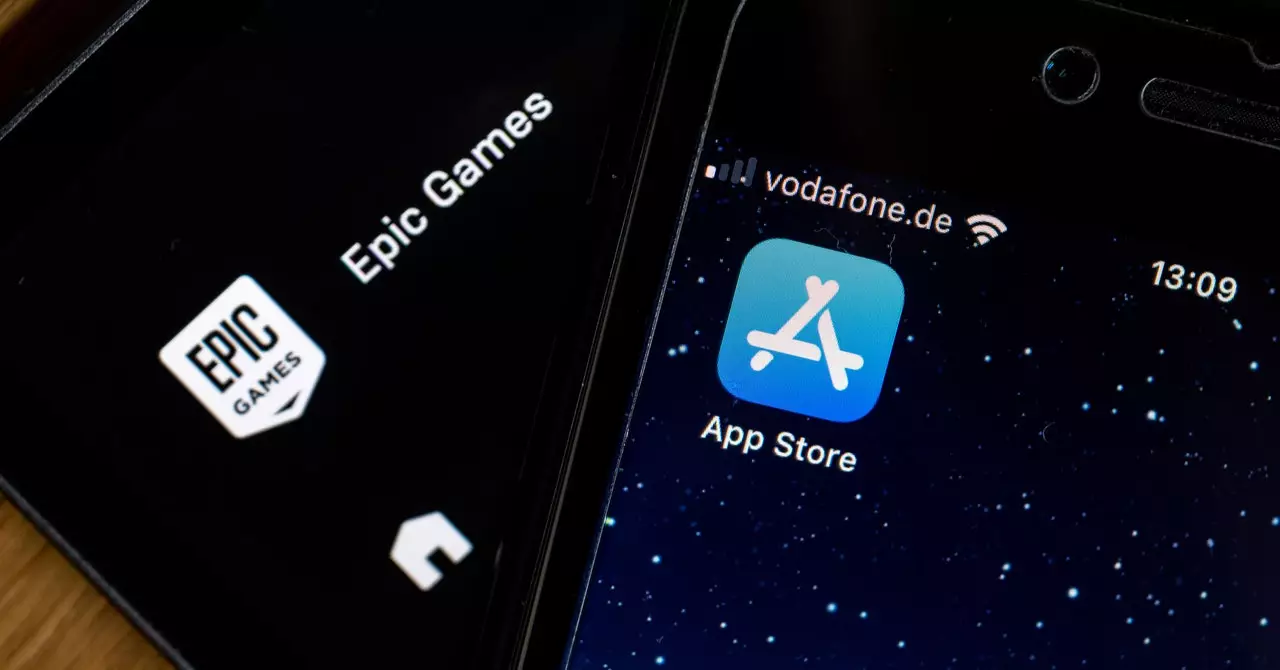Epic Games has officially launched its own app store for iOS in the European Union, introducing competition to Apple’s App Store for the first time. This move comes as a result of new EU tech rules that have been implemented over the past year, shaking up the existing dynamics in the mobile app market.
The Epic Games Store will initially offer Epic’s own games, such as Fortnite, for download on iPhones, with plans to expand to third-party developers’ games in the future. One of the key differences is the commission structure, with Epic Games Store taking a maximum 12 percent commission on sales, undercutting Apple’s fees that can go up to 30 percent. This aggressive pricing strategy has the potential to challenge Apple’s highly lucrative app store business in the long run.
The introduction of the Epic Games Store on iOS is made possible by a new regulation known as the Digital Markets Act (DMA) in the EU. This regulation compels tech giants like Apple to allow alternative app stores on their devices, opening up the market to more competition. This move underscores the EU’s commitment to promoting fair competition and consumer choice in the digital space.
Epic CEO Tim Sweeney has been vocal about the need for fair competition in the mobile gaming industry. He believes that competition will push Apple to improve its pricing, features, promotions, and marketing deals. By introducing the Epic Games Store to iOS, Sweeney aims to address the existing shortcomings in the mobile gaming ecosystem and provide users with more options.
The arrival of the Epic Games Store poses a significant challenge to Apple’s hegemony in the iOS app market. Apple’s App Store has been a major revenue driver for the company, generating billions in sales annually. However, developers have increasingly raised concerns about the high commission rates, stringent rules, and privacy changes imposed by Apple, prompting them to seek alternative platforms for their apps.
The emergence of alternative app stores like the Epic Games Store demonstrates the potential for increased competition and lower prices for consumers. By leveraging the DMA regulations, tech companies can be compelled to make changes that benefit users and foster innovation in the app market. This shift towards greater competition is a positive development for developers, consumers, and the digital ecosystem as a whole.
The launch of the Epic Games Store on iOS represents a significant milestone in the evolution of the mobile app market in the European Union. By challenging Apple’s dominance and introducing a new player in the game, Epic Games is poised to shake up the status quo and drive positive change in the industry. With the support of EU regulations and a commitment to fair competition, the app market is set to become more diverse, vibrant, and consumer-friendly in the coming years.

